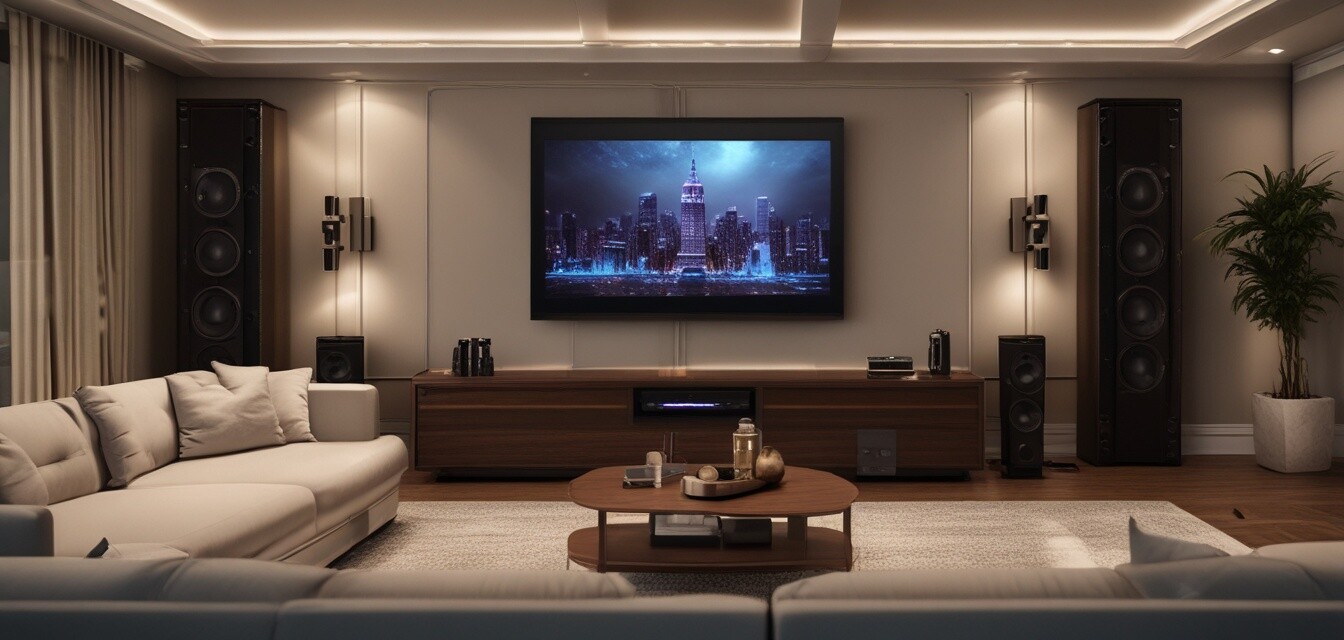
How to Choose the Right Amplifier for Your Home Theater
Key Takeaways
- Understanding the types of amplifiers is crucial for a quality audio experience.
- Consider power output, impedance, and connectivity options when selecting an amplifier.
- Match the amplifier with your speakers to optimize sound performance.
- Research brands and read reviews to ensure you're making an informed decision.
Choosing the right amplifier for your home theater can be the difference between an average audio experience and an exceptional one. With various options available, understanding the different types of amplifiers and their significance is essential to achieving superior audio quality. In this guide, we'll break down everything you need to know about amplifiers.
Types of amplifiers
There are several types of amplifiers available, each suited for different setups and preferences. Let's explore the most common types:
| Type | Description | Ideal for |
|---|---|---|
| Stereo Amplifiers | Designed to amplify two channels (left and right). | Music lovers and simple home theater setups. |
| Multichannel Amplifiers | Capable of powering multiple speakers simultaneously. | Full home theater systems with surround sound. |
| Integrated Amplifiers | Combines a preamplifier and power amplifier in one unit. | Compact systems and those seeking simplicity. |
| Digital Amplifiers | Efficient amplifiers that convert digital audio signals. | Modern setups with digital sources. |
Factors to consider when choosing an amplifier
When selecting an amplifier, remember to consider several factors to ensure you find the perfect match for your home theater system:
- Power output: Measured in watts, ensure the amplifier has sufficient power for your speakers.
- Impedance: Match the amplifier's impedance rating with your speakers for optimal performance.
- Connectivity options: Choose amplifiers that support various input sources to enhance versatility.
- Size and design: Ensure your amplifier fits your space and complements your home theater aesthetics.
Evaluating sound quality
Sound quality heavily relies on how well the amplifier pairs with your speakers. Here are some important checkpoints:
| Checkpoint | What to Look For |
|---|---|
| Clarity | Amp should deliver clear audio without distortion, even at high volumes. |
| Dynamics | Good dynamics enhance the sound range and depth. |
| Soundstage | Amp should create a spacious soundstage, allowing for accurate placement of sounds. |
Pros and cons of different amplifiers
Pros
- Improved audio quality enhances overall viewing experience.
- Specific amplifiers can cater to unique audio needs and spaces.
- Increased control over sound customization.
Cons
- Cost can be significant for high-end models.
- Complexity in setup for multichannel amplifiers.
- Compatibility issues may arise with certain speaker models.
Researching brands and reviews
As with any purchase, research is key. Here are steps to find the right product:
- Check out the latest news and trends in home audio.
- Read online reviews on specific amplifiers from trusted sources.
- Join home theater forums for recommendations and user experiences.
- Compare prices across platforms to ensure you receive the best deal.
Conclusion
Choosing the right amplifier requires careful consideration of your needs and preferences. Understanding the different types of amplifiers, evaluating sound quality, and researching brands will equip you to make an informed decision. Remember, a high-quality amplifier is an investment that plays a significant role in creating an immersive home theater experience.
Further reading
Explore our other home theater receivers for an upgrade that enhances your audio experience even further. For additional audio improvements, check out our article on acoustic treatments and accessories. Gain deeper insights into home audio systems in our comprehensive buying guides.

